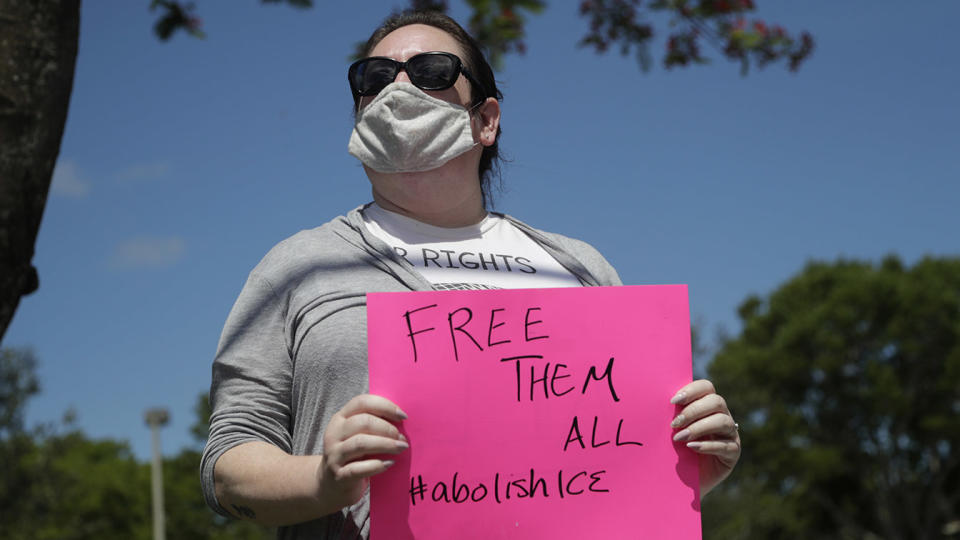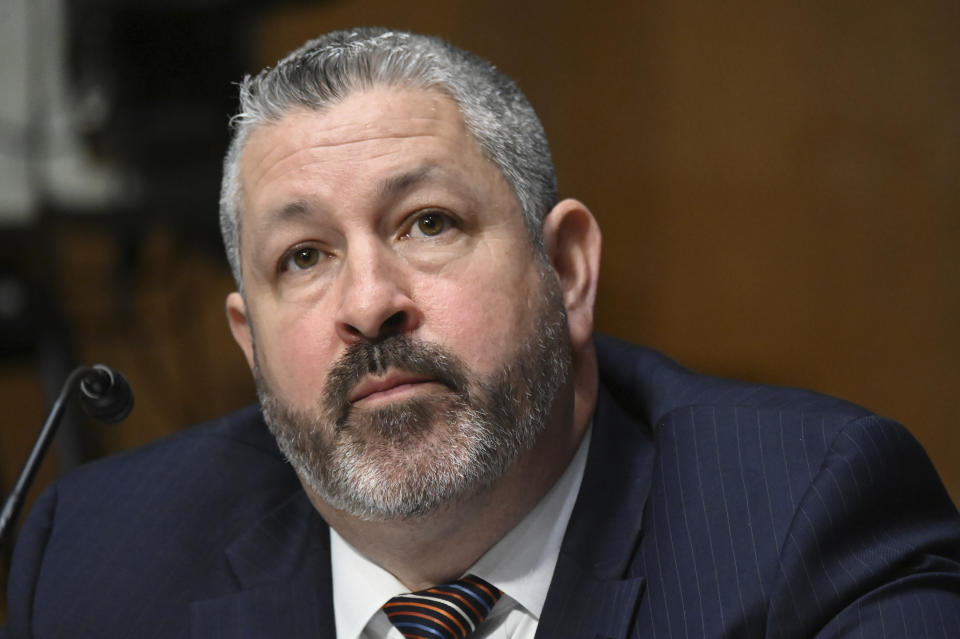ICE lacks coronavirus tests for immigrant detainees
WASHINGTON — A top immigration official for the Trump administration admitted on Tuesday that immigrants are not systematically tested for the coronavirus when they are apprehended, nor when they are removed from the United States.
The first of those admissions elicited a shocked reaction from Sen. Dianne Feinstein, D-Calif., a ranking member of the Senate Judiciary Committee, which had convened a hearing on the effects of the pandemic on the incarcerated.
“Oh, wow,” the veteran lawmaker said.
The sporadic testing of the 25,900 undocumented immigrants who were in federal custody as of late last month means the coronavirus could continue to proliferate devastatingly through the roughly 200 detention facilities operated by Immigrations and Customs Enforcement, where those undocumented immigrants are detained before either being removed from the United States or being allowed a provisional stay here.
So far about 1,400 people in ICE custody have tested positive for the coronavirus, according to NBC News. Five — three employees and two detainees — have died from COVID-19, the respiratory disease caused by the coronavirus. NBC News found that ICE facilitated the spread of the virus by transferring inmates between facilities. That practice was intended to slow the spread.

Describing his experience in ICE detention to the New Republic, an undocumented immigrant from the Dominican Republic said a “desperate” situation had developed at the Hudson County Correctional Center in New Jersey.
“There’s barely soap, there’s barely toilet tissue,” the inmate said. “They pretty much just told us that if we feel like we have symptoms, then it’s their job to take us out of here.”
Testifying before the Senate Judiciary Committee on Wednesday, Henry Lucero, executive associate director for enforcement and removal operations at ICE, appeared to say that a shortfall in supplies prevented the testing of all detainees in ICE custody.
Titled “Examining Best Practices for Incarceration and Detention During COVID-19,” the hearing also included officials from the federal Bureau of Prisons, which is also struggling with a coronavirus outbreak within it facilities.
Later, under questioning from Durbin, Lucero said that “individuals are generally tested when they are showing symptoms of COVID-19.” By the time a person shows symptoms, that person could have been “shedding virus” — that is, transmitting the disease — for several days. Such transmission would be especially likely within the confines of a prison or detention center.

The assertion seemed to stun Feinstein.
“Not till then?” she asked.
“Generally, that’s true,” Lucero acknowledged, adding that “a certain facility” had started testing all incoming detainees, and that 22 detention centers in all would have that ability in the near future.
Lucero added that all incoming ICE detainees are “cohorted” and kept apart from the wider population for two weeks, in a kind of mass quarantine.
“Our goal is to test everyone at intake,” Lucero told Feinstein, adding that “the availability of testing is what kind of controls this.”
Lucero’s answer appears to contradict President Trump’s repeated assertion that anyone in the United States who wants a coronavirus diagnostic test is able to receive one.
Questioned later by Sen. Dick Durbin of Illinois, another senior Democrat on the committee, Lucero said that deportees answer questions on a “removal checklist” and undergo a “temperature check prior to boarding planes.” He said there are bilateral agreements with some countries to test returning undocumented immigrants for the coronavirus. Lucero could not say which countries were party to such agreements.
Guatemala has denounced the practice of ICE returning infected detainees.

Tuesday’s hearing came after yet another violent night of protests across the country precipitated by the killing of George Floyd, an unarmed black man. Floyd was killed when a Minneapolis Police Department officer allegedly asphyxiated him by placing a knee on his neck while Floyd was lying restrained on the ground, seemingly posing no risk to the officer or anyone else.
Though the plight of federal prisoners and undocumented immigrants may not be directly related to that of Floyd, his killing nevertheless puts the entire criminal justice system under a harsh spotlight. Democrats on the committee cast the hearing in those broader terms.
“When we turn the key on the lock on the door of a prison or a detention facility,” said Sen. Durbin, “we put our collective knees on the necks of the most vulnerable people in America. The question is, will we be listening to their pleas for life?”
_____
Click here for the latest coronavirus news and updates. According to experts, people over 60 and those who are immunocompromised continue to be the most at risk. If you have questions, please refer to the CDC’s and WHO’s resource guides.
Read more:



